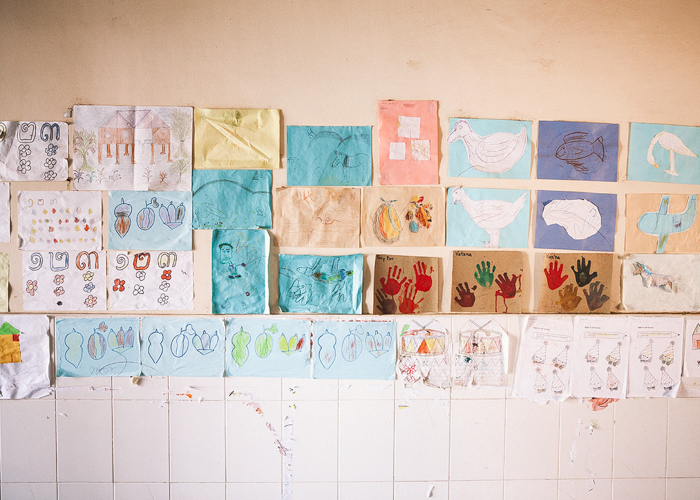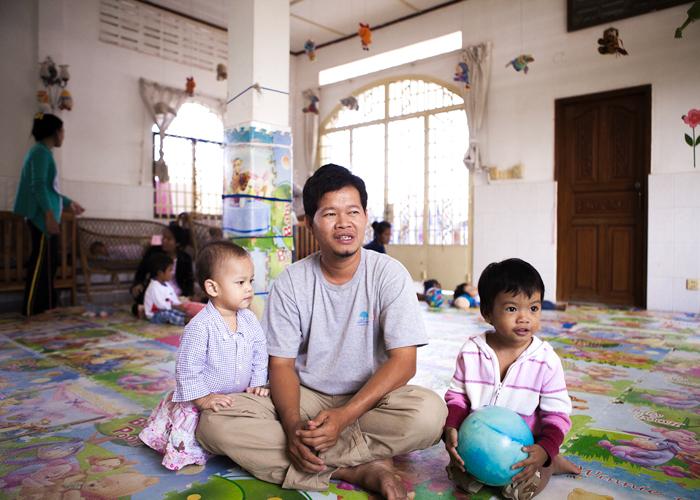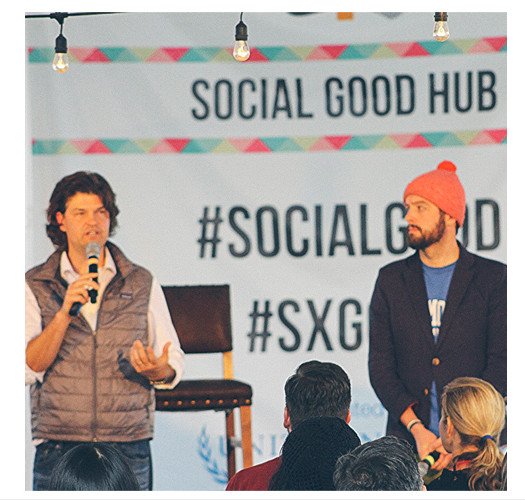Finding the Solution in the Cause: Reuniting Cambodia’s Families
In Phnom Penh, Cambodia’s capital, you have an interesting mesh of chaotic city wants and rural countryside needs, creating a mesmerizing landscape entrenched in high rise buildings, scooters, fruit stands and dust. And it is here, among the buildings and fruit stands, that families are falling apart under the pressures placed upon them, and children are being lost or abandoned before they’ve even met their families.
On the outskirts of Phnom Penh, there is an organization called the Mlop Children’s Center that works specifically towards reuniting broken families. In recent years, there has been a growing struggle amongst families with newborn children, for example, from marital and familial issues to a lack of financial preparation. So, what sometimes happens is and according to our conversation with Mlop’s director, a mother or a father who is either uninformed, unprepared or unsupported that has a newborn will abandon them at the hospital due to feeling that they have no other options available to them.
What Mlop then aims to do, setting them apart from other children’s centers and orphanages, is to not look at a child as being in need, but the family as being in need too. So instead of aiming to keep the children at the center or adopt them out to new homes, Mlop works tirelessly to reunite children with their families. With a nearly 90% success rate, Mlop finds the tools to solve the issues at home that caused the family separation in the first place.
Yet Mlop doesn’t just reconnect families, they provide jobs for mothers at their center making handcrafts out of recycled goods, they provide education to families to prepare them to take proper care of their child, and once the families are ready the children are sent back to their homes. This ensures a safe, secure, and healthy environment for children to grow up in. And the relationship continues from there as Mlop continues to offer daycare services and mentoring to the families, as well as, checks in on the families to ensure they are caring for the needs of their child.
The most important thing that Mlop does, and all groups should try to do, is to not look at the problem but at the cause. Instead of looking at each child individually, they continue to look at the family as a unit and work to solve its struggles from the root-cause. As outsiders, we can easily get caught up in “problem-solving” tactics and fixed solutions, but we forget that each problem has a cause, and that only when we see the cause are we able to find the solution. So let’s all take a step back, look at our struggles more broadly and ask, “What is the cause that needs a solution?”.
LEARN + CONNECT
Learn more about Global Populace
Connect via Facebook and Instagram
FROM THE EDITOR
At Conscious, we are inspired by remarkable people and organizations, and so we set out to tell stories that highlight human-interests, global initiatives, innovation, community development, and social impact. You can read more stories like this when you subscribe.
Editor’s Note: Conscious Magazine has teamed up with Kellie Kreiss, Co-Founder of Global Populace, to tell stories of impact that encourage an exchange of ideas. Find out more about Kellie Kreiss in this interview here. Follow the series.



